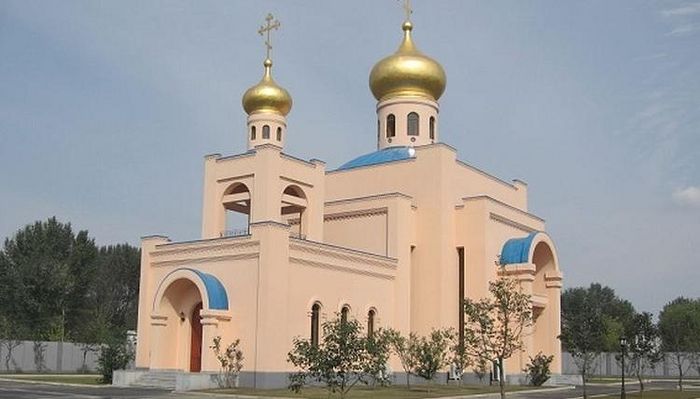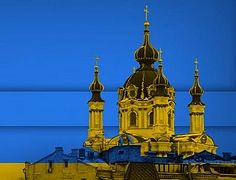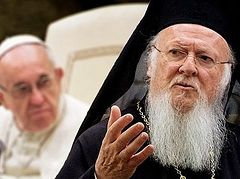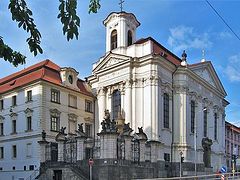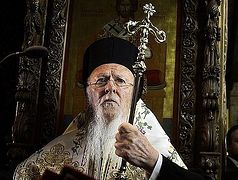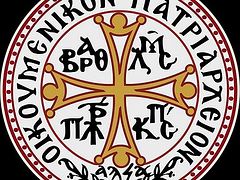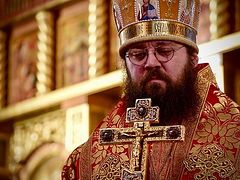Pyongyang, December 6, 2018
The Patriarchate of Constantinople has declared that the Russian Church of the Life-Giving Trinity in Pyongyang, North Korea to it, as was stated in the calendar published by the Orthodox Metropolis of Korea of the Patriarchate of Constantinople on the occasion of the visit of Patriarch Bartholomew to Seoul, South Korea.
The church is the first and only Orthodox parish in North Korea, and has nothing do with the Ecumenical Patriarchate as the Russian Embassy in North Korea wrote on its Facebook page yesterday.
“The question is, what relation does Patriarch Bartholomew have with our church? Why does he want it? To gratify his ambitions? To turn the fruits of the ministry of the Russian missionaries into politicking, parasitic for the faith? We will not allow him to cause chaos, as he has managed to do in Ukraine, here in DPRK,” the message reads.
The decision to build the church was personally made by former North Korean leader Kim Jong Il on August 22, 2002, as a sign of Russian-Korean friendship, after he visited the Church of St. Innocent of Irkutsk in Khabarovsk, Russia, according to the site of the Russian Embassy in North Korea.
The foundation stone for the church was laid on June 24, 2003, and four North Korean students entered the Moscow Seminary the same year, two of them being ordained as deacons in 2005. The parish community of the Church of the Life-Giving Trinity was officially established by the Russian Holy Synod in July 2006, and the church was consecrated on August 13, 2006, with the two deacons being ordained as priests. The parish is part of the Vladivostok Diocese of the Russian Orthodox Church.
However, Constantinple has always considered the church to be its own, under the idea that that entire Korean Peninsula is its own canonical territory.
“When the parish was finally prepared, the then head of the Russian Orthodox Department for External Church Relations and now Patriarch of Moscow, Kirill, with the support of the Russian Embassy in North Korea, went into the jurisdiction of the Ecumenical Patriarchate and uncanonically consecrated the parish,” Metropolitan Ambrosios of the Korean Metropolis of the Ecumenical Patriarchate said in an interview last summer.
In its post entitled “UNSEEMLY AMBITIONS,” the embassy reports: “We were very surprised that in far-away Istanbul, they seriously consider the Pyongyang Holy Trinity Church to be their own. In any case, this follows from the calendar published by the Korean Metropolis of the Patriarchate of Constantinople on the occasion of Patriarch Bartholomew’s visit to Seoul.”
Patriarch Bartholomew is visiting South Korea from December 3 to 8. His Eminence Metropolitan Hilarion (Alfeyev), the head of the Moscow Patriarchate’s Department for External Church Relations, also just visited China and both Koreas in late November.
Further, the embassy notes that such ambitions from Constantinople have been rebuffed several times by North Korea.
“Just recently, Patriarch Bartholomew was given the cold shoulder when he again asked to be received in Pyongyang. More than once, and more than twice the Orthodox Committee of the Democratic People's Republic of Korea (DPRK) has explained its position to the Turkish subjects: The Holy Trinity Church was erected as a symbol of Korean-Russian friendship by decision of the former leader of the DPRK Kim Jong Il,” the embassy’s message reads, adding that the church has been a place of prayer for many years for diplomats of the Russian Embassy and others.
“The Ecumenical Patriarch, which was brought to Korea on the bayonets of Greek soldiers in 1950, cannot, by definition, have any relation to this project,” the message further reads.
The embassy also notes that the parish was built and beautified by the embassy staff and their families, together with the Koreans, and with financial support from Vladivostok. The icons and bells are Russian, the clergy were trained and ordained by the Russian Church, and the altar is blessed with the presence of relics of the New Martyrs and Confessors of the Russian Church.
In his interview, Met. Ambrosios also states that Metropolitan Sotirios, the previous ruling hierarch for Constantinople, had sent large containers with materials for the church three times, and that he had even sent and traveled with a crane to place the dome on top the church. He also notes that Met. Sotirios was invited by the parish to visit and serve several times, with their gratitude for his help in building the church.
The parish’s permanent parishioners are all embassy staff and their families.
Updated 12/6/18, 5:25 PM to include information from Met. Ambrosios
Follow us on Facebook!

